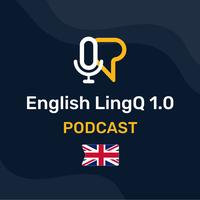#235 Steve on the Jon and Mary Radio Show in Milwaukee, USA
Mary: Steve Kaufmann joins us, his book The Way of the Linguist: A Language Learning Odyssey.
Good morning, Steve.
Steve: Good morning.
Mary: First of all, let's define what you mean by linguist and let's talk about some of the obstacles most of us face in trying to learn a language. Steve: Okay. Well, first of all, I've used the word linguist to mean someone who speaks more than one language and the Oxford Dictionary does define it that way. So, of some of us think a linguist is somebody who studies the theory of language; it can also mean someone who speaks more than one language. I think lots of people are potential linguists and probably the biggest obstacle is the way languages are taught in schools.
Mary: Alright. Then how do you not agree with that?
Steve: Well, because in order to learn a language you first have to listen to it, you have to read it, even if it's not entirely clear to you; stories, simple stories. Whereas, in school what we do is we ask the young learner to learn grammar, to produce the language correctly, which is not going to happen.
At least in Canada here, people in the English school system after 10 years of French and being marked on their tests and so forth, they can't speak and, what's more, they end up not liking the language. They don't like learning language, they don't think it's something they can do and they don't do it. Jon: Yeah, I can relate to that, too. Especially, you feel like it's torture after a while. Like you're just memorizing and you can't really apply it in any meaningful way, you know? Steve: Exactly and it's contrary to the way the brain learns. You see what should happen in schools is there should be simple stories for little eight-nine year olds to listen to, to read, a bit of help with the vocabulary, help to explain the story. Make it fun for them, so it's the story that motivates them not the desire to learn the past tense or the future or the conditional or any of that sort of stuff. And they needn't produce the language, because if they can't produce the language at the end of 10 years why bother trying to get them to say something correctly when they're just getting started. Jon: Yeah.
Mary: Very true. Whenever I travel, Steve, I always try to learn a few phrases and then it makes me think, ah, I've got to learn this language. You talk in your book, though, about conviviality and that's a huge part of it. Explain that to us.
Steve: Well, yeah, you learn a language to communicate. I mean that's why you learn it and I can say that from my own personal experience, now that I speak nine and I've added Russian these last couple of years. The ability to be with people in their language -- I listen to Russian radio programs now to understand how they see the world -- whether it be with Chinese people or Spanish speaking people, you just get a lot closer to people who speak another language and it's a wonderful feeling and well worth the investment. Jon: I was going to ask you about that Steve. Steve Kaufmann, by the way, joining us this morning, his book called The Way of the Linguist. The reward has to be that it makes your world smaller in some ways, doesn't it? Steve: Well, absolutely, the rewards are many. First of all, I should point out that we have a website called LingQ (l-i-n-g-q.com) where we have content for 10 languages. If you do it right it's fun, so the first reward is that you learn in a way that is enjoyable. Then, in my own case, professionally it has been a tremendous advantage; socially, as I said earlier; culturally, to be able to read books in different languages; listen to audio books.
One thing, Mary, I would point out, you know, I'm the same as you. If I go to a country where I don't speak the language, let's say Indonesia or, I don't know, Latvia, I pick up a phase book, but it really doesn't get you anywhere, because even if you are able to say those phrases, the people come back at you with much more and you can't understand them. So, I think that it is possible to learn a language to the point where you can be fluent in it and that just picking up a few phrases is our first impulse, but, hopefully we take it further than that.
Mary: Very good. I wish we had more time, Steve, but, definitely, your website is going to be worth checking out, because you have your own system.
Steve: It's free, it's the way I learn, it's the way the brain learns and we welcome people to come and join us there. It's an international community at LingQ (l-i-n-g-q.com) and my book is available at Amazon. Jon: Alright, The Way of the Linguist: A Language Learning Odyssey. Steve Kaufmann, thanks for being with us.
Steve: Thank you.
Mary: Thanks so much, Steve.

